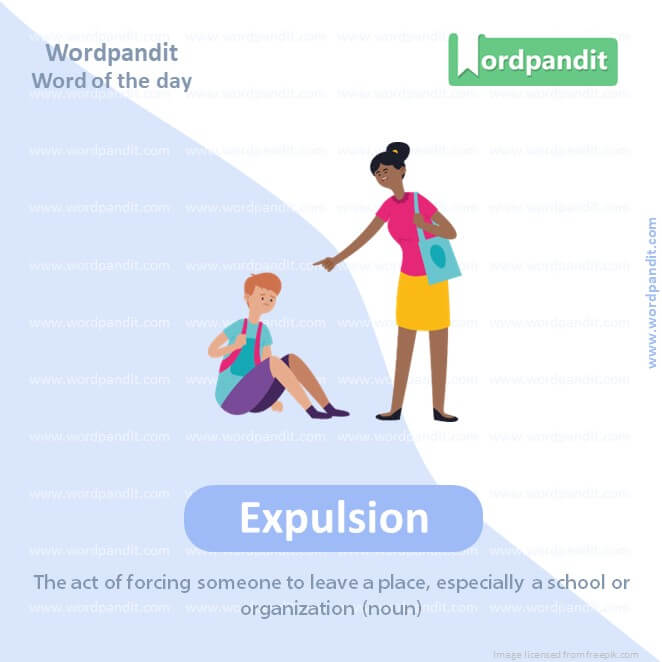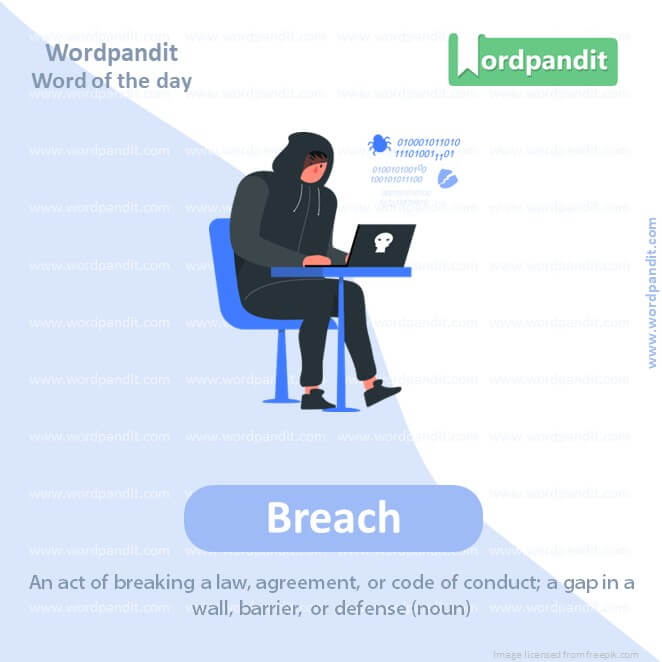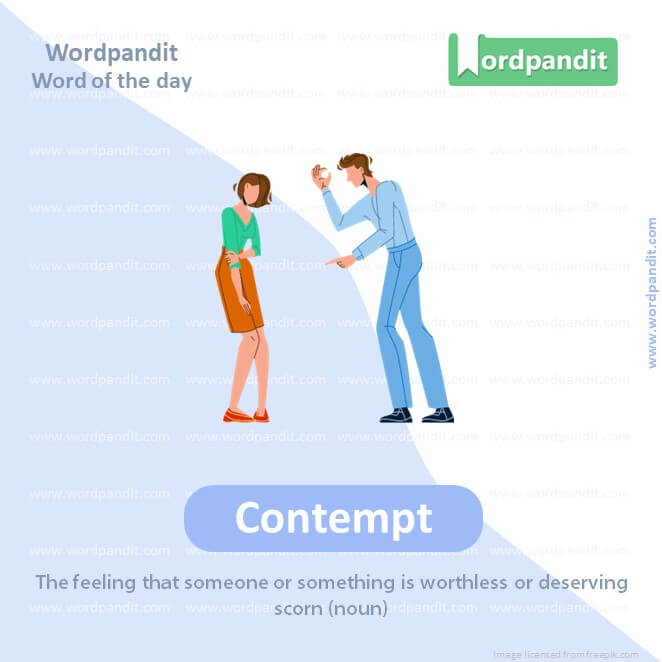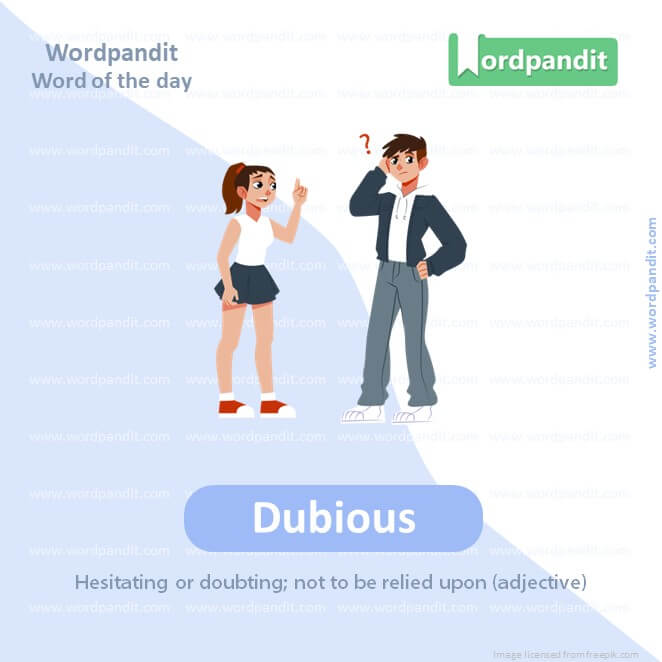Daily Vocabulary Words: List of Daily Used Words
Hi there. Welcome to this special section @ Wordpandit.
Our endeavour here is straightforward: highlighting important daily vocabulary words, you would encounter in The Hindu. This is your repository of commonly used words; essentially, we are posting a list of daily used words. Hence, this has significant practical application as it teaches you words that are commonly used in a leading publication such as The Hindu.
Visit the website daily to learn words from The Hindu.

WORD-1: Expulsion
CONTEXT: The expulsion of Trinamool Congress Member of Parliament Mahua Moitra from the Lok Sabha by a hurried voice vote on December 8, based on a report of the Ethics Committee of the House, is bad in form and substance.
EXPLANATORY PARAGRAPH: Expulsion is like being told you can’t be part of a group or place anymore. For example, if someone is being too mean or not following the rules at school, they might be told they can’t come to school anymore. That’s expulsion.
MEANING: The act of forcing someone to leave a place, especially a school or organization (noun).
PRONUNCIATION: eks-pul-shuhn
SYNONYMS: Removal, Dismissal, Ousting, Ejection, Banishment, Exclusion, Eviction
USAGE EXAMPLES:
1. The student faced expulsion for breaking the school’s rules.
2. The club voted for the expulsion of a member.
3. His behavior led to his expulsion from the team.
4. Expulsion is a serious consequence for misconduct.

WORD-2: Breach
CONTEXT: It was not, however, surprising. By a 6:4 majority, including the vote of a suspended Congress MP, the committee recommended her expulsion, holding her guilty of ‘unethical conduct,’ ‘breach of privilege’ and ‘contempt of the House.’
EXPLANATORY PARAGRAPH: Imagine there’s a rule or promise, and someone doesn’t follow it. That’s a breach. It’s like if you promise to keep a secret but then you tell someone, you’ve made a breach of your promise.
MEANING: An act of breaking a law, agreement, or code of conduct; a gap in a wall, barrier, or defense (noun).
PRONUNCIATION: breech
SYNONYMS: Violation, Infringement, Break, Rift, Gap, Transgression, Contravention
USAGE EXAMPLES:
1. The company was sued for a breach of contract.
2. He committed a breach of trust.
3. The wall had a small breach in it.
4. Security breaches can be very dangerous.

WORD-3: Contempt
CONTEXT: It was not, however, surprising. By a 6:4 majority, including the vote of a suspended Congress MP, the committee recommended her expulsion, holding her guilty of ‘unethical conduct,’ ‘breach of privilege’ and ‘contempt of the House.’
EXPLANATORY PARAGRAPH: Contempt is a feeling that someone or something is not important or worthy of any respect. It’s like when you think something is so silly or bad that you don’t care about it at all.
MEANING: The feeling that someone or something is worthless or deserving scorn (noun).
PRONUNCIATION: kuhn-tempt
SYNONYMS: Disdain, Scorn, Disrespect, Derision, Disregard, Disparagement, Disapproval
USAGE EXAMPLES:
1. She looked at the mess with contempt.
2. His actions were viewed with contempt by the community.
3. Contempt for the law is a serious issue.
4. He spoke with contempt about his opponent.
WORD-4: Precedent
CONTEXT: These were charges raised by a Bharatiya Janata Party MP, who was in turn depending on the statement of Ms. Moitra’s estranged partner. The committee cited in its report a precedent of the expulsion of 11 MPs in 2005 for a cash-for-query sting operation by a news platform.
EXPLANATORY PARAGRAPH: Precedent is like using an old story to make a decision about something new. For example, if your brother got a cookie when he was five, and now you’re five, you might say you should get a cookie too. That’s using a precedent.
MEANING: An earlier event or action that is regarded as an example or guide to be considered in subsequent similar circumstances (noun).
PRONUNCIATION: pres-uh-dent
SYNONYMS: Example, Standard, Model, Criterion, Guideline, Benchmark, Template
USAGE EXAMPLES:
1. The court’s decision set a precedent for future cases.
2. There was no precedent for this kind of situation.
3. They followed historical precedent in their decision-making.
4. Setting a good precedent is important for leaders.
WORD-5: Explusion
CONTEXT: The committee conceded in its report that it had no proof of cash exchanges and its report called for “legal, intensive, institutional and time-bound investigation,” into that aspect. Nevertheless, it was emphatic in calling for her expulsion, and even labelled the sharing of her login credentials a criminal act.
EXPLANATORY PARAGRAPH: Expulsion is like being told you can’t come to a place anymore because you didn’t follow the rules. For example, if someone keeps breaking the rules at school and doesn’t stop even after being warned, they might be told they can no longer come to school. That’s expulsion.
MEANING: The act of forcing someone to leave a place, especially a school or an organization, due to breaking rules or behaving badly (noun).
PRONUNCIATION: eks-puhl-shuhn
SYNONYMS: Dismissal, Ousting, Ejection, Removal, Banishment, Exclusion, Discharge
USAGE EXAMPLES:
1. The student faced expulsion for repeatedly breaking school rules.
2. After the incident, the club’s committee voted for his expulsion.
3. Expulsion from the tournament was the result of unsportsmanlike conduct.
4. The organization has a strict policy that could lead to expulsion for such offenses.

WORD-6: Draft
CONTEXT: In fact, there is no good reason to keep draft Bills secret. Bill drafts are meant for public circulation and debate before being brought to Parliament for discussion and voting. That there is very little of that happening these days is a sad commentary on parliamentary democracy. The report of the Ethics Committee also faced the same fate.
SOURCE: The Hindu
EXPLANATORY PARAGRAPH: Draft can mean different things. One way, it’s like when you write a story for the first time, and it’s not perfect yet. That’s your draft, and you can change it to make it better. Another way, it’s like a cool breeze coming through a window.
MEANING: A preliminary version of a piece of writing; or the movement of air in an enclosed space (noun).
PRONUNCIATION: draaft
SYNONYMS: Outline, Blueprint, Sketch, Breeze, Current, Preliminary version, Airflow
USAGE EXAMPLES:
1. She wrote the first draft of her novel.
2. There was a cold draft coming from the window.
3. The architect presented the draft of the building plan.
4. He was selected in the first round of the draft.
WORD-7: Fate
CONTEXT: In fact, there is no good reason to keep draft Bills secret. Bill drafts are meant for public circulation and debate before being brought to Parliament for discussion and voting. That there is very little of that happening these days is a sad commentary on parliamentary democracy. The report of the Ethics Committee also faced the same fate.
SOURCE: The Hindu
EXPLANATORY PARAGRAPH: Fate is like a story that’s already written about what will happen in the future. It’s like an invisible force that decides what happens to people, kind of like a plan for what’s going to happen in someone’s life.
MEANING: The development of events beyond a person’s control, regarded as determined by a supernatural power (noun).
PRONUNCIATION: fayt
SYNONYMS: Destiny, Fortune, Luck, Kismet, Predestination, Lot, Future
USAGE EXAMPLES:
1. They believed it was their fate to be together.
2. The hero accepted his fate bravely.
3. Many people wonder about their fate in life.
4. The story was a tragic tale of fate and love.

WORD-8: Dubious
CONTEXT: The 495 page report was tabled and voted on the same day, rejecting the appeal of Opposition MPs for a more detailed discussion once Members had the time to read it in detail. The precedent that the majority in Parliament can expel an Opposition member on a dubious charge is ominous for parliamentary democracy. The expulsion of Ms. Moitra is a case of justice hurried and buried.
SOURCE: The Hindu
EXPLANATORY PARAGRAPH: Dubious is when you’re not sure if something is true or good. It’s like when someone tells you a story that sounds a little strange, and you think, “Hmm, is that really true?” That’s feeling dubious.
MEANING: Hesitating or doubting; not to be relied upon (adjective).
PRONUNCIATION: doo-bee-uhs
SYNONYMS: Doubtful, Uncertain, Unsure, Questionable, Skeptical, Unconvinced, Suspicious
USAGE EXAMPLES:
1. She gave him a dubious look when he explained his plan.
2. The idea seemed dubious to everyone involved.
3. He made some dubious claims about his past.
4. The quality of the product was dubious.
WORD-9: Deglobalisation
CONTEXT: There is a movement towards deglobalisation. Many ongoing geopolitical conflicts such as the Russia-Ukraine war and the Israel-Hamas war have created a climate of sanctions, leading to breaks in supply chains as well as disruptions in international settlements due to non-access to systems such as SWIFT for the sanctioned countries. World real GDP growth has also fallen, leading to reduced demand for global exports. Many countries including India want to reduce their dependence on imported petroleum due to supply uncertainties and price volatility.
SOURCE: The Hindu
EXPLANATORY PARAGRAPH: Deglobalisation is like when the world decides not to share as much with each other anymore. It’s like if all your friends in the neighborhood suddenly stopped sharing toys and playing together.
MEANING: The process of reducing international integration, interaction, and exchange between countries, often involving a shift towards more local or national focus (noun).
PRONUNCIATION: dee-gloh-buh-luh-zay-shuhn
SYNONYMS: Disintegration, Decentralization, Nationalization, Isolationism, Retreat from globalization, Protectionism, Reversal of globalization
USAGE EXAMPLES:
1. The economic crisis led to a period of deglobalisation.
2. Deglobalisation has impacted international trade.
3. Many industries are experiencing the effects of deglobalisation.
4. The policy promoted deglobalisation and local businesses.
WORD-10: Volatility
CONTEXT: There is a movement towards deglobalisation. Many ongoing geopolitical conflicts such as the Russia-Ukraine war and the Israel-Hamas war have created a climate of sanctions, leading to breaks in supply chains as well as disruptions in international settlements due to non-access to systems such as SWIFT for the sanctioned countries. World real GDP growth has also fallen, leading to reduced demand for global exports. Many countries including India want to reduce their dependence on imported petroleum due to supply uncertainties and price volatility.
SOURCE: The Hindu
EXPLANATORY PARAGRAPH: Volatility is like the weather changing quickly and unexpectedly. It’s when things can change fast in a way that is hard to predict, like prices going up and down a lot or someone’s mood changing quickly.
MEANING: The quality of being likely to change rapidly and unpredictably, especially for the worse (noun).
PRONUNCIATION: voh-luh-tuh-luh-tee
SYNONYMS: Unpredictability, Instability, Changeability, Inconstancy, Fluctuation, Variability, Erraticism
USAGE EXAMPLES:
1. The stock market is known for its volatility.
2. He was struggling to deal with her emotional volatility.
3. The volatility of the situation made it hard to predict.
4. Price volatility can be a risk for investors.
Vocabulary Spelling
In the rich tapestry of language learning, getting the ‘vocabulary spelling’ right forms a significant thread. These spelled words or the arrangement of letters give each word its unique identity. However, understanding ‘vocabulary spelling’ proficiently needs an insightful and strategic approach.
Starting the journey of learning ‘vocabulary spelling’, one must focus on observing patterns. English language words often follow certain spelling rules or patterns. Recognizing these can simplify the learning process, offering a systematic way to appreciate ‘vocabulary spelling’.
The trick to ingraining ‘vocabulary spelling’ effectively lies in the power of repetition. Regularly writing words can help reinforce the spelling in your memory. To boost this, tools like spelling quizzes or flashcards with the word on one side and the spelling on the other can provide an engaging way to practice ‘vocabulary spelling’.
An unconventional yet powerful approach to remember ‘vocabulary spelling’ is by using mnemonic devices. For instance, connecting the word’s spelling with a catchy phrase or rhyming pattern can make recall easier.
Integrating technology with learning ‘vocabulary spelling’ has its unique benefits, too. Apps offer various exercises and tests that not only enhance memory but also make learning fun.
Importantly, the learning of ‘vocabulary spelling’ should be punctuated with regular revisions. This ensures the recalled spelling is correct and cements it in your long-term memory.
In a nutshell, mastering ‘vocabulary spelling’ requires keen observation, regular practice, innovative mnemonic tools, use of technology, and timely revisions. As you follow this comprehensive path, you strengthen your grasp over ‘vocabulary spelling’, paving the way to language proficiency. Remember, every word spelled correctly is a moment of triumph in the enthralling escapade of language learning!







